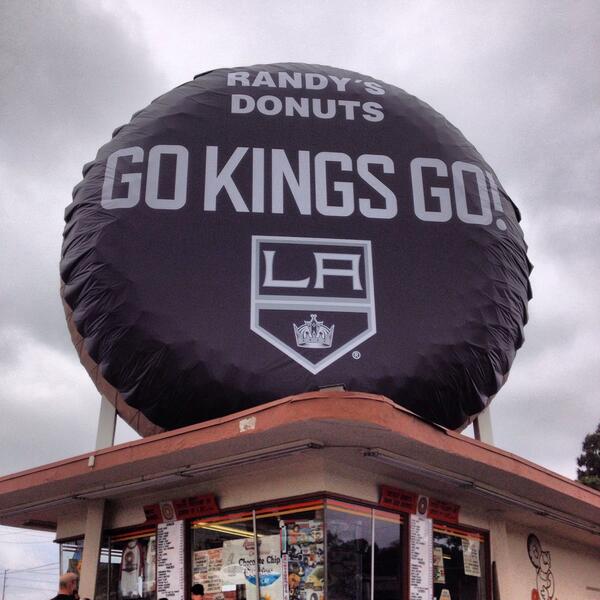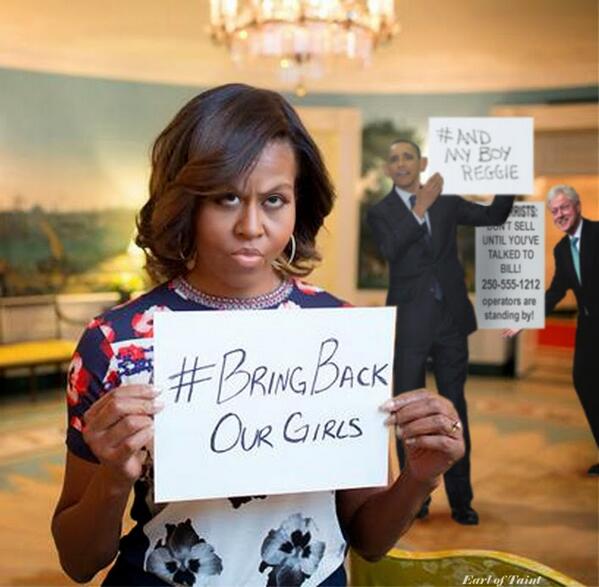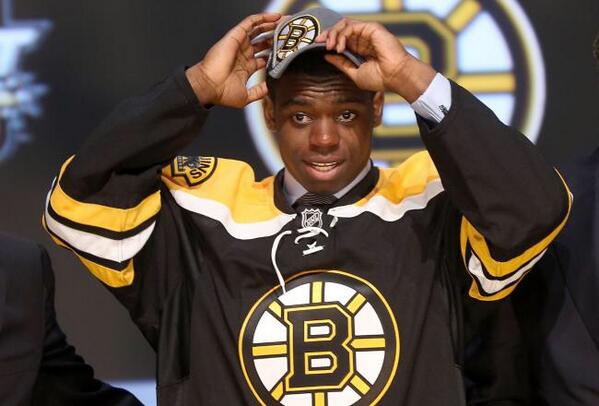 As sure of myself as I may appear around here, I harbor a constant concern that I might not be correct in my assessments.
As sure of myself as I may appear around here, I harbor a constant concern that I might not be correct in my assessments.
I often wonder why I seem to be such a singular voice on some issues. There are many much smarter people in the world and in my industry of Canadian film and television in particular.
Thus I constantly ask myself why they don’t see the same things I see. I can’t be the only one who, like William Goldman’s Butch Cassidy, has “vision” while the rest of the world wears bifocals.
Whenever I discuss CBC TV, it’s with the same opinion I’ve held my entire career, that they uncontrollably stumble from crisis to crisis, always appearing neither certain of their creative direction nor their mandated priorities while repeatedly “re-imagining” some nebulous brighter future.
But there’s always somebody (often entire movements of somebodies) insisting this is our single most important cultural institution, an essential we must trust to knit the country together. And that has always given me pause.
But now, I know I’ve been right. This week I came across a document that proves beyond any doubt that the Canadian Broadcasting Corporation is managed by Buffoons.

By now we’re all had a chance to come to grips with the stunning revelation last November that Rogers Communications had secured 12 years of NHL broadcast rights on all Canadian platforms for the impossibly rich price of $5.2 Billion.
It was a number no other broadcaster could match. And therefore, after 60 years with “Hockey Night in Canada” as its flagship, audience share crown jewel and in-house mint to finance other programming, the CBC was without Canada’s game.
As internal CBC documents reveal, they had made a pitch, but one it appears based more on winning sympathy than arguing from strength on what it could contribute to the NHL Brand and the nation.

It appears CBC was hoping to land what hockey insiders call “the hometown deal”, one of those contracts that teams offer a star athlete, based not on money or perks, but hoping they can pull on some heartstrings or his childhood dream of playing for the guys he grew up watching.
Really? That felt possible to somebody, anybody at CBC?
What hard-headed sports league made up of Billionaire owners, Millionaire players and all sorts of profit seeking stakeholders could anyone possibly think would be willing to short-change itself for what works best for the poor old, eternally cash-strapped CBC?
But that appears to be the single significant argument CBC negotiators made. Why? Did they seriously think it was a sentiment that would sway the cash starved Phoenix Coyotes or Tampa Bay Lightning?
Or was it because after years of inaction and indecision in its own head offices, it was aware that a plea for mercy was its only option?
Clearly it was the latter, because the key terms of the negotiated agreement between “Hockey Night in Canada” and Rogers make it obvious that the Mother-Corp had nothing in the Plan “B” category. And giving in to rape and pillage was the inescapable result.

Under the negotiated terms between CBC and Rogers to save “HNIC”, any semblance of forethought, let alone respect for the money granted by you and me as taxpayers, not to mention saving what little might remain of its decades of hockey history and self-respect had been set aside.

No risk –- and no reward.
No guts –- no glory.
“Essential promotional capability” and “substantially higher” market share where the real world returns are dubiously beneficial at best.
320 hours of Prime time programming that won’t earn a dime will be annexed from the CBC schedule to fill the pockets of a major competitor while simultaneously handing over audiences Rogers does not currently reach on its own.
Rogers licensed CBC to continue to broadcast games on Saturday nights (and only Saturday nights) for a term of four years. But even those are not “exclusive” rights.
That means Rogers can place competing games on as many platforms as it damn well pleases on those same Saturday nights.
Meaning, on the positive side, an end to the cross-country belly-aching from markets who don’t see their home team with any regularity because the dog-ass Toronto Maple Leafs or more culturally significant Montreal Canadiens have a Saturday night game (which they almost always do) in a larger TV market.
Because Rogers will serve those smaller markets on other channels, in the process significantly depleting the audience which used to belong to the CBC alone.
Or Rogers will pick up the Leafs or Habs or Canucks if those games have more appeal and CBC will get smaller market games.
Either way, kiss those once massive “HNIC” numbers good-bye as the overall audience fragments over several channels and platforms all offering hockey at the same time.
And once the Playoffs arrive, CBC still only retains Saturday games (if one is scheduled) and if we’re in a situation like this year with only one Canadian team in contention, take a guess at which corporation will get first dibs on that.
CBC Executives effectively gave away their signal (which we pay for) to a company that, while constantly crying poor when it comes to producing Canadian content, had the wherewithal to come up with $5.2 Billion.
They handed over 320 hours of Prime Time to that self same competitor. Prime Time that will earn them nothing, reducing even further the possibility of financing the rest of the CBC schedule to industry standard levels.
All of which combine to make the logic behind the essential benefits CBC was after for itself even more difficult to understand.
For a start, how valuable does “HNIC” remain as a marketing tool for other CBC content in such a shrunken market?
And since CBC retains no editorial control, are we to believe Rogers will not be promoting its own programming on “HNIC” as well? Could we see ads for directly competing content airing during the same game?
Might we see one ad for “Dragon’s Den” on CBC versus ten for a Rogers series? If you were Rogers, whose interests would you look after first, the competition or your own shows and your own advertisers? IE: Where you earn and spend your money.
How else do you earn back $5.2 Billion?
And how does a cash flush company keep more of it’s cash? By getting the CBC to agree to “providing a production subsidy” and “production resources”.
Yeah, that’s right. In addition to relinquishing airtime to Rogers, you and me will continue to pay for the production of the show. With nobody in management at CBC (who we’re also continuing to pay) having any say over the content or receiving one dime from Rogers to cover the costs of production.
And if those realities seem tragically ill-considered, wait until you see what comes next…

Reducing the staffing impact?
Meaning it’s better to use diminished resources to retain staff who are not earning you any money than divert that smaller money pool to producing alternative programming?
Who beyond a life-long government bureaucrat with no respect for the easy money that comes from taxpayers thinks that’s a viable business plan?
The last point reinforces the perception that this whole deal is about buying four years so CBC Brass can plan a “structured exit from hockey” something they were well aware they already faced the last time NHL rights were negotiated.
Only this time, they’ll plan for it. Right?


I don’t know if the above pages were redacted or simply reveal that nobody had considered the potential impact or considered other options.
What they did plan for was a “soft landing”.

In other words, CBC executives did not plan for a hockey-less future. But they’ll start now.
And they’ll have an idea by 2018 at the latest.
Or at least they’ll have a “programming strategy”.
And a job that includes lots of International travel, 5 star hotels, 4 star restaurants and limos as they “re-imagine” what the television landscape will be in 2018.
The way they knew what was coming down the pipe for 2014 and were completely on top of that.
And for those of you already brain-storming the type of show the CBC will need for the coming world of tight budgets and smaller audiences. There’s this…

Yeah. Don’t bother. And don’t bother for 2015, 2016, 2017 and maybe even 2018. Because they won’t know what they want until then.
Not that much different from seasons past to be sure. At least you know the familiar lack of commitment to a direction and creative uncertainty will remain the same.
But the “Cover Your Ass” priorities remain top of mind. Who needs planning or programming when you have a PR campaign!

Yeah, it all came down to not losing the promotional platform hockey provides in order to promote programming they don’t have and can quite possibly no longer afford to produce…

This is what some are already calling “CBCmegedon”.
It’s over. CBC TV is done. It’s not coming back from this. It simply can’t.
You don’t give up 320 hours of Prime Time and the revenue it earns and stay in the game. Not with the slim profit margins that exist in television these days.
If there were real sanity in government instead of a desire to appear fair-minded or thoughtful and get re-elected, “Evil” Stephen Harper would put a bullet in the CBC’s airless head right now, saving all of us the coming misery.
Or at the very least the coming recriminations for not dumping more money into the hands of people no bank or venture capitalist would have any confidence in funding.
Why can’t we just take the $4 Billion that will be spent on the CBC over the four year exit strategy these incompetent nincompoops have structured for themselves in lieu of doing their job for the last four years -– and spend it on something actually beneficial to the country.
I don’t know if that’s buying enough MRI machines so that the wait times for Canadian Cancer patients are cut in half…
Maybe it’s making sure every aboriginal community finally has clean water, affordable food and reliable housing…
Could be we finally get high speed internet service to far flung communities and rural schools, so those people can watch all the CanCon on Netflix too and otherwise catch up to the rest of us.
Perhaps we consider the creative community about to be flat-lined by reduced CBC production and spend it on actual television production instead of indecisive executives, so Canadians can see their own stories on the platform of their choosing by the time Hockey season rolls around this Fall and not sometime in 2018.
The document above is definitive proof (available in full here) that anyone purporting to be managing the CBC is a Buffoon and needs to be shown the door as quickly as possible.






























